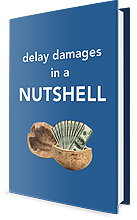Where Does Inefficiency on a Construction Project Come From?
![[Construction inefficiency first post]](https://www.traunerconsulting.com/wp-content/uploads/Construction-Inefficiency-Post-One-Header-version-two.jpg)
More and more of the construction claims that we review, evaluate, or prepare include a lost productivity or inefficiency component.
What is Inefficiency?
When a contractor alleges that one of its operations is inefficient, it typically means that the contractor did not achieve his or her anticipated level of productivity and, thus, incurred increased costs in the performance of that work item.
Why is a Contractor’s Planned Level of Productivity an Essential Part of its Bid Price?
Well, productivity on construction projects became a concern the instant contractors became interested in making a profit, which is probably right after the shovel was invented.
It really comes down to this. When a contractor submits its bid, its price is based on achieving a particular level of productivity on each of the work packages that comprise the entire project. The contractor’s ability to achieve or exceed that level of productivity has a significant impact on its profit margin/bottom line.
For example, if an item of work is not completed within budget, then one of the reasons for the increased cost could be that the contractor did not achieve its planned level of productivity. This lost productivity or inefficiency is caused by expending more labor or equipment hours than planned to complete the work item. This expenditure of additional hours can lead to real, significant, and unanticipated increased costs.
As projects have become more complex, the potential for experiencing inefficiencies has multiplied. Because complex projects have many different operations occurring simultaneously, the project management team has to stay continually aware of potential issues and impacts as they arise.
Because labor and equipment costs are such a large percentage of a construction project budget, the goal is to complete the work with those resources as productively and efficiently as possible. If any events or issues affect the productivity of a particular operation, the result is usually the expenditure of additional hours that equate to increased costs, which can negatively affect the contractor’s bottom line.
Mark Nagata is a Director/Shareholder of TRAUNER and is an expert in the areas of critical path method scheduling, delay and inefficiency analysis, and construction claim preparation and evaluation. He loves to get questions at mark.nagata@traunerconsulting.com.
If you liked this article, be sure to sign up on the left side of our website to receive our Ideas & Insights in your email. Be sure to check your email after signing up!

